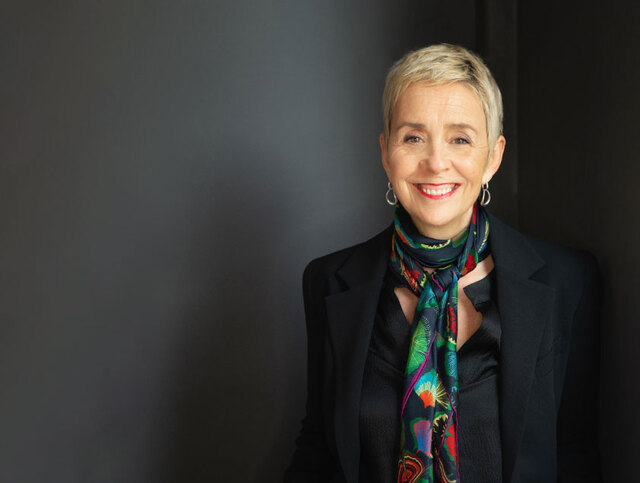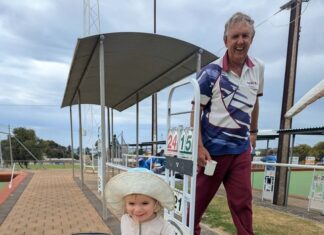The Domestic, Family and Sexual Violence Commission’s first yearly report on the progress of the National Plan to End Violence against Women and Children 2022-2032 has been presented to parliament and welcomed by violence prevention organisations.
Delivered one year after the release of the First Action Plan 2023-2027 and the Aboriginal and Torres Strait Islander Action Plan 2023-2024, the inaugural report tracks the Australian Government’s progress on achieving its vision to end gender-based violence.
The leadership of the First Nations National Plan Steering Committee would be critical in guiding the systemic change needed to address the disproportionate impact of domestic, family and sexual violence on Aboriginal and Torres Strait Islander communities, and to respond to the priority reforms identified in the National Agreement on Closing the Gap agreement.
The Commission’s report was informed by extensive engagement with a range of stakeholders, including Australians with lived experience of gender-based violence, specialist sector organisations and practitioners, researchers, the health sector, police, and a range of other sources of evidence.
In subsequent reports, information and data collected under formal reporting mechanisms would enable a more comprehensive assessment of progress by the commission.
Exploring areas across policy, implementation and service delivery, the annual report’s findings were intended to be constructive and offer contemporary insights and opportunities to accelerate, amplify and drive impact towards the objectives of the National Plan over the coming years.
Domestic, Family and Sexual Violence Commissioner Micaela Cronin said while efforts were being made to end gender-based violence in a single generation, there were no easy solutions, and governments must remain committed to tackling the issue.
“After meeting with more than 300 individuals and organisations this year, I know the anger and distress that many communities feel – and their frustration at the lack of progress in addressing gender-based violence,” she said.
“While governments have recognised the scale and severity of the impact of domestic, family, and sexual violence with funding increasing over decades, I have heard consistently, across the country, that many services are unable to keep up with demand.”
National violence prevention organisation Our Watch chief executive officer Patty Kinnersly welcomed the report’s focus on measuring progress, including through improved data gathering; the importance of a strong specialist workforce in family, domestic and sexual violence; increased work with men and boys; the need for a greater focus on sexual violence; and the need for increased funding for frontline services.
“With two in five women experiencing violence in their lifetime and one in four men saying they have used violence, this is an issue that is present in every suburb, every community, every sporting club and many workplaces,” she said.
“Significant work is underway to drive the changes needed across Australia to support widespread efforts to prevent and end violence against women and children.”
Ms Kinnersly said the report was a cornerstone to delivering the widespread change needed to end gender-based violence.
The report outlined key areas of focus for consideration of governments, including:
-Continued focus on governance of the National Plan’s implementation and efforts to assess and measure progress.
-Governments have recognised the critical role of lived experience in policymaking. Lived experience engagement needs to be embedded across all aspects of policy design, implementation and evaluation, prioritising a co-design approach.
-Governments have invested significant public funds to address domestic, family and sexual violence. Despite this, services and systems are overwhelmed by community need.
-Men must be a part of every aspect of ending violence. Governments must support efforts to redefine masculinity and engage men effectively. More intervention options for men using or at risk of using violence are needed, which take a trauma-informed approach, improve information sharing and risk assessment and management.
-Workforce capability development needs national leadership, prioritising the specialist domestic, family, and sexual violence workforce. Since addressing domestic, family and sexual violence is a key element of work across many sectors, capability development and integration with these workforces is an opportunity to improve system responses.
Ms Kinnersly agreed that engaging men and boys and having them lead the change was crucial to ending violence against women.
“Men and boys are facing huge pressures to conform to rigid ideals of masculinity – which is a key driver of violence against women,” she said.
“They are being bombarded with harmful content about women in the online space and some of that is reinforced in their day to day lives.
“Supporting men and boys to develop positive ways to be a man and see those positive male role models around them is crucial to ending violence against women.”
In the year ahead the commission would use governments formal reporting to inform analysis on the progress of the National Plan.
There would be a sharper focus on areas the commission considers progress to be lagging including, the response to children and young people and sexual violence.
“The wisdom, courage, and compassion of lived experience advocates across the country – sharing their stories so that in their words, ‘no one else has to experience what I have experienced’ – drives my passion to work towards the National Plan goal – to end gender-based violence,” Commissioner Cronin said.
If you or someone you know is experiencing, or at risk of experiencing, domestic, family or sexual violence, call 1800RESPECT on 1800 737 732, chat online via www.1800RESPECT.org.au, or text 0458 737 732.
Feeling worried or no good? No shame, no judgement, safe place to yarn. Speak to a 13YARN Crisis Supporter, call 13 92 76. This service is available 24 hours a day, 7 days a week.
If you are concerned about your behaviour or use of violence, you can contact the Men’s Referral Service on 1300 766 491 or visit www.ntv.org.au








